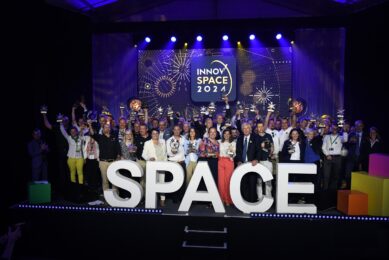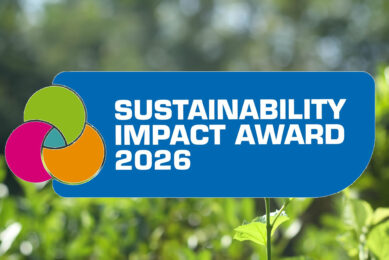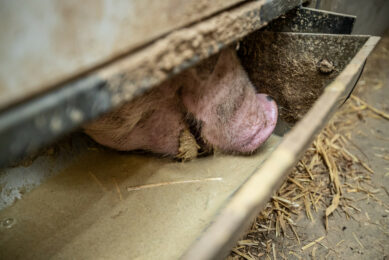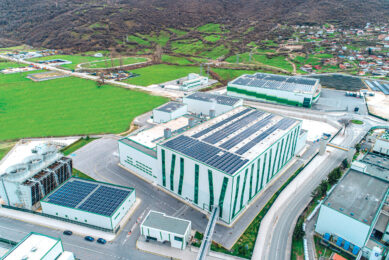Insects: Circular, thus sustainable
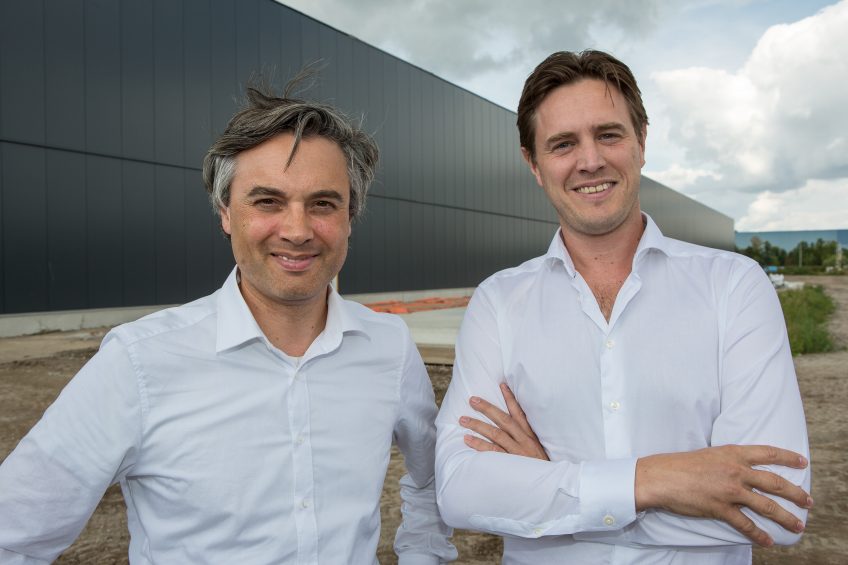
“To make insect protein part of the food and feed production chain in the long term, this new protein source has to be available, of stable quality and reliable in supply.” This is according to the insect entrepreneurs Kees Aarts and Tarique Arsiwalla, CEO and CCO of Protix.
In all the discussions around making agriculture more sustainable, terms such as new proteins, circularity, food waste and upcycling are often mentioned in the same context. Despite being a newcomer in food and feed, the insect producing sector seems to be ticking all the boxes regarding these sustainability terms. Pioneers from day one are the people from Protix, a Dutch based insect company that puts safety, stability, reliability and availability first. We talked to the two founders of this company on how the insect sector is evolving and why a focus on quality and cooperation is so important to move forward.
|
There is a lot of buzz about producing insect meal. But do you feel there is more talking than action in the insect meal industry?
Kees Aarts (KA): ‘It is always hard to distinguish between talking, announcing things, real actions and simply bluff. Because it is a young industry we see a lot of insect companies still building a team, sourcing capital and building supply chains towards customers. Consequently, we see that companies sometimes tend to over-promise, in terms of production volumes for example. Although we might have over-promised in the past as well, at Protix we try to be as pragmatic and realistic as possible and build long-term relationships with our customers. We have only so much volume to sell and thus we cannot serve everyone all the time. At the same time, we don’t want to cut corners. It simply takes time to get solid operations going, have the right team in place and understand all the necessary biological growth drivers, processing and harvesting processes. When you take a controlled step by step approach you have a better understanding of what to expect and when you can deliver the products promised to clients.”
Is it difficult to enter the (traditional) animal feed market with insect meal?
Tarique Arsiwalla (TA): “It is not easy, but certainly doable. But several things are important to consider. First of all, the animal feed market is an incredibly large industry, moving at a fast pace. As a newcomer it starts with investing in a level of trustworthiness. Not so long ago our customers and prospects questioned: will people accept insects at all and how do we declare it on the label of the packaging? Often, just ‘animal protein’ was written on the ingredients label, but now we see pet food or aquafeed companies write down insect meal specially on the package, because it has become a real USP of the product. The second phase is the reliability phase. The animal feed market is not interested in the occasional few thousand tonnes of insect meal. The feed business wants long term reliability and availability of quality ingredients. And we are now starting to deliver on this promise. Reliability and quality of production are our core values. Reliability is also about continuously investing in knowledge of the ingredient characteristics and application as well as the know-how to further increase production capacity. All the data we gather in our production units are coupled with scientific data to be able to constantly improve. Together with the investments we do in upscaling, this allows us to be a long term global reliable supplier of quality ingredients.”
Why is insect meal better than traditional ingredients like soybean meal or fish meal?
KA: “The availability of soybean- and fish meal is a problem in the long term. Land to grow crops and oceans to grow fish are under pressure. Calculations tell us that with the growing world population and the pressure on traditional protein sources, a shortage of animal feed protein arises in 2050 and beyond. Various reports have indicated that potentially 12-14% of this protein gap can be filled with insect meal. Insects are a logical choice, considering that insect production can be strongly linked to the growing human population. People create food waste, and I believe that always remains to be the case, however careful consumers we strive to be. Of course, some of the food waste can be fed directly to farm animals (pigs). But not all of it is suitable for every animal. For instance chickens and farmed fish species (sectors that see tremendous growth on a global scale) are hard to feed with feed by-products, the trend for these species is optimised and formulated feeds with high-quality ingredients. Therefore some waste streams are better upcycled through insects, the natural source of protein for fish and chickens in nature. Insects can turn this waste into valuable protein that can in turn be fed to poultry and fish. A circular system in its purest form. Besides being circular, insects have unique nutritional qualities (the protein and chitin fractions have immune stimulating effects), are natural and when feeding live insects, we stimulate natural behaviour in animals (as already shown in trials in turkeys).”
There is quite some diversity in the type of substrates used by insect companies? Are all systems equally sustainable?
TA: “To allow the insect sector to move forward fast, you should never compromise on feed and food safety. Secondly, the science has to be right. And these two things should be fully embraced from day one. Our sector is not like the start-up Uber where you can skip corners, create a lot of buzz among customers, which in the end leads to governments changing (forced to change) the rules. We are in the feed and food business, where things are ‘always forbidden, unless explicit allowed’. When we talk about substrates, for us, that means using clean food waste to grow the insects on. Some companies outside Europe, for example use hazardous waste or slaughterhouse waste, although we don’t know on what scale this happens. But why run the risk of using the hazardous waste if there is still so much to recover from the clean (food) waste. We are staying away from that because we don’t see much value in this.”
What about international standardisation of insect meal?
TA: “Regarding international standardisation of insect derived ingredients, a couple of hurdles need to be taken. For starters, there are not that many companies selling insect derived products commercially to consumers yet. The number of companies that become member of the International Platform of Insects for Food and Feed (IPIFF) is growing fast, which means that companies are willing to sit down and set standards. We also see that happening in North America and Asia, although not at the same level as in Europe. But the average age of an insect company is 5-6 years old, so it simply takes time and we are very positive about the general trend towards industry alignment on important topics like standardisation and regulation. While working on standardisation of a product like insect meal, other questions arise like how to deal with international trade and export (papers). What are the feed hygiene standards and what do we mean with having a ‘pure’ insect meal? It is logical that these questions are asked because the sector is so young. We will see in the coming years how this will be further fine-tuned.”
A new production facility is currently being built in the Netherlands. How significant is this facility for Protix?
KA: “This second facility (to open at the end of Q1) is a very important step for Protix and also for the industry and marks the change that is seen in the global insect sector. This is a true demand-driven investment. The volumes that we will produce here are largely pre-sold already in term contracts for the coming years (even for 2021) for our existing and some new customers. When we grow, our customers can also grow as well and move forward with their sustainability goals. We expect that the European Commission will soon be voting for approval of insect meal in poultry feed. This will open up a large new business for us. It is a blueprinted facility that can be built anywhere around the world. To do this, it is important to have good partners for that internationalisation phase. Remember that insect protein is not just a simple solution in an existing industry. It’s an entire new resource which demands an entire new supply chain and asset-base to produce and distribute to customers. It also means new legislation needs to be put in place and new certification schemes need to be developed. No single company can do that, so we work with companies like Hendrix Genetics and Bühler to improve our core business and prepare for international roll-out. We invest millions into these partnerships and R&D programmes in order to be and remain the most reliable producer of Black Soldier Flies in the world.”


 Profile
Profile

